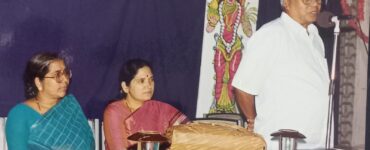A tree and Sumana are synonyms. Everything green on this ground reminds us of the pleasant presence of Sumana and her words. Every sentence she writes reminds how our lives are naturally filled with greenery, and we also hear about how we miss such a sweet presence. Sumana Roy is the author of two works of nonfiction, How I Became a Tree and Provincials, as well as Missing: A Novel, My Mother’s Lover and Other Stories, and two collections of poems, Out of Syllabus and VIP: Very Important Plant.
Interview: Sonali Chanda
How did you get connected with the world of plants? I mean, from when did you noticed that you have a deep connection with the world of plants?
SR: I can’t really put a date to this consciously any more than I can say when I came to love the taste of mangoes. In the Siliguri that raised me, plants were a part of the neighbourhood. My friends, my brother and I were always stealing jaam, kul, mangoes, bok phool and other flowers. As I grew slightly older, I started building a garden with my father in the new house that he could build in the early 1990s. I paid no special attention to them – by this I mean that they were part of my world, like my parents were, to whom, too, I paid no special attention. I feel a connection with everything – and possibly every being – and so my affection for plant life does not feel special to me. It does to others, I now understand, but that is perhaps because we are so used to loving only our own species.
What are the thoughts behind writing the book “How I Became a Tree”?
SR: I wasn’t aware that I was working towards a book. I was going through a difficult time in my life. On my way to work and back – it was a very long commute – I would make notes about how I saw the world being denuded of plant life. This continued over a few years – I don’t know how many. When I was, at last, able to afford a laptop of my own, I began feeding it with these notes. After a few months, the shape of something that might resemble a book began to emerge.
Did you plan previously to write it as a book or the urge came out spontaneously?
SR: I had had many false starts at writing a book – there was always something to do, and my days were taken up by a difficult commute, besides, of course, housekeeping and caregiving. At some point of time, I had stopped thinking about ‘writing a book’. I wrote whenever I could or wanted to. I did not set out to write a book about plant life. I was making notes for my own survival, to be honest. I was turning to the plant world to discover a philosophy that I felt I might have lost – both as an individual and as a species – on the way. Anything I write comes from a spontaneous need and desire, the reason I’ve not been able to write anything without emotion.
While reading How I Became a Tree I noticed your sense of connecting with different sensations of a tree, their pains and pathos, their responses of sensory organs.
SR: Yes, as I said, it had to do with my groping towards an analogical imagination, to spot equivalences between them and myself, a world of sentience and sensations that I think connects us.
What specific quality did you find in them?
SR: I found them exactly as I find most things in the world – alive. And I, in turn, wanted to remain that – alive.
*









Add comment